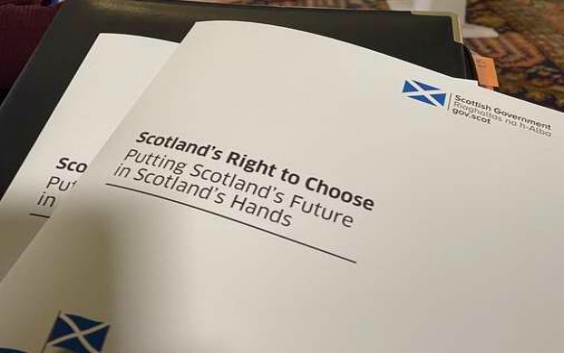Latest Featured News Articles From the gov.scot website
Boosting Scotland’s exports
First Minister stresses importance of international links.
Efforts are being stepped up to help Scottish companies increase their exports following Brexit.
First Minister Nicola Sturgeon told business leaders and trade experts it was more important than ever for Scotland to strengthen its ties with other nations.
In a keynote speech at the CBI’s International Trade conference in Edinburgh, the First Minister detailed initiatives being taken to help meet the Scottish Government’s 10 year target of increasing exports from 20 per cent to 25 per cent of Scotland’s GDP.
READ MORE: https://www.gov.scot/news/boosting-scottish-exports/
A new bank for Scotland
Scottish National Investment Bank Bill passes stage 3.
Legislation to establish a Scottish National Investment Bank has been passed unanimously by the Scottish Parliament.
The new institution will direct investments that deliver economic, environmental and social returns, and help Scotland’s journey towards net-zero carbon emissions. It will aim to increase innovation, give support to small and medium size enterprises (SMEs), and build a high-tech and inclusive economy.
The bank is expected to be operational before the end of the year. It will have an initial capitalisation of £2 billion over 10 years with the aim that it will ultimately become self-financing.
Economy Secretary Derek Mackay said:
“The Scottish National Investment Bank has the potential to transform Scotland’s society by powering innovation and building a high-tech, inclusive economy.
READ MORE: https://www.gov.scot/news/a-new-bank-for-scotland/
Refreshed plan for economic growth
New website among range of actions.
A new website which makes it easier for businesses to get information and support is one of the measures in a refreshed Economic Action Plan for Scotland.
Findbusinesssupport.gov.scot contains hundreds of products, services and events from Scotland’s enterprise and skills agencies, and will be further developed to host content from across Scotland’s public sector.
The new site is one of the commitments in the refreshed plan, launched by Economy Secretary Derek Mackay at a business breakfast in Edinburgh.
READ MORE: https://www.gov.scot/news/refreshed-plan-for-economic-growth/
Most vulnerable at risk from Brexit
Report finds 137 separate impacts.
The UK’s exit from the EU is highly likely to negatively impact the most vulnerable people in Scotland, a new report has found.
‘The Social and Equality Impacts of Brexit’ is an independent report, commissioned by the Scottish Government, which has identified 137 potential impacts on those already facing inequality, discrimination, or social exclusion.
The report highlights impacts including the loss of legal rights, employment protections, funding opportunities, healthcare rights, and supply and access to food, fuel and medicines.
Communities Secretary Aileen Campbell said:
“The Scottish Government has repeatedly warned that any kind of Brexit will be disastrous for our most vulnerable citizens.
“The UK Government failed to carry out any meaningful assessment on the impact of Brexit, including an Equality Impact Assessment. The Scottish Government asked an independent expert Dr Eve Hepburn to review the social and equality impacts of leaving the EU on people in Scotland and across the UK.
READ MORE: https://www.gov.scot/news/most-vulnerable-at-risk-from-brexit/

